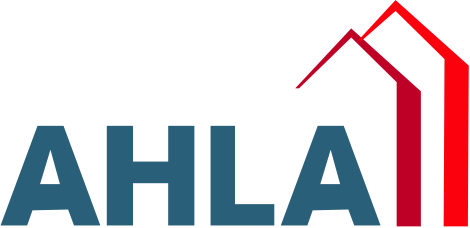Operators listing multiple units for rent drove over one-third (36%) of Airbnb’s revenue in the Philadelphia region – over $5 million. Pennsylvania House of Representatives Tourism and Recreational Development Committee hearing on Short-Term Rentals and Airbnb’s impact in the state set for Wednesday, September 14, 2016.
WASHINGTON, D.C., September 14, 2016 – Ahead of a Pennsylvania House of Representatives Tourism and Recreational Development Committee hearing on short-term rentals in York, PA, the American Hotel & Lodging Association is releasing a new detailed look at the growth of Airbnb’s operations in Philadelphia, as Pennsylvania lawmakers begin to consider new rules aimed at short-term rentals across the state. The study, part of a detailed analysis of Airbnb’s commercial operations, was conducted by John O’Neill, MAI, ISHC, Ph.D., Professor of Hospitality Management and Director of the Center for Hospitality Real Estate Strategy at Pennsylvania State University and examined activity on Airbnb between October 2014 and September 2015.
The study builds on the national analysis released earlier this year that shows a troubling trend: a growing number of commercial operators are using Airbnb to run unregulated, and often illegal, lodging businesses.
The hearing and study will give lawmakers an opportunity to learn more about the proliferation of short-term rentals across the state, and how new legislation could help address the growth of these illegal hotels.
Key report findings:
- More than half (57%) of Airbnb’s Philadelphia revenue – over $8 million – comes from operators who listed properties for rent more than 180 days per year.
- Over one-quarter of Airbnb’s revenue in the Philadelphia area – 27% or almost $4 million – comes from operators who listed units for rent full time.
- Operators listing multiple units for rent drove over one-third (36%) of Airbnb’s revenue in the Philadelphia region – over $5 million.
- The 5 Philadelphia-area ZIP codes with the most properties listed on Airbnb from October 2014 through September 2015 accounted for more than $7 million, or nearly half of Airbnb’s revenue in the Philadelphia metropolitan area.
“Hotels and bed-and-breakfasts, like mine, are required to follow extensive rules and regulations, including fire codes, health and sanitation standards, food and alcohol certifications, noise and use ordinances, and more. Short-term rentals and vacation rentals often don’t follow any of those rules,” said Dee Fegan, owner of 30 Timber Road Bed & Breakfast in Mechanicsburg. “If short-term rental hosts are allowed to continue to skirt the law, legitimate businesses like mine will no longer be able to compete. What we need is equal regulation – that’s fair to all of us small business owners, that’s fair to communities where these businesses operate and that’s fair to guests who are coming to stay.”
“We respect the rights of homeowners to occasionally rent a room in their house. However, there is a clear difference between those who truly operate in the spirit of the shared economy and the large and growing number of full-time corporate landlords and hoteliers who use Airbnb to run businesses out of residential units,” said John Longstreet, President and CEO of the Pennsylvania Restaurant & Lodging Association. “These bad actors are using Airbnb to dodge regulations that protect the safety and security of consumers, and in doing so they degrade the quality of life for residents in our communities.”
“Illegal hotels operating in residential areas in the Philadelphia area present serious concerns for travelers and residents alike,” said AH&LA President and CEO Katherine Lugar. “From disrupting communities and neighborhoods to creating potential health and safety hazards for guests, the issues generated by commercial operators are pervasive. In Philadelphia, as in cities around the country, we have seen that Airbnb is unwilling to be transparent with its data and be a partner in creating safe environments for its users and the communities in which it operates. And now we know why: a growing portion of Airbnb’s revenue comes from commercial landlords using the platform to operate unregulated and often illegal lodging businesses. Policymakers in Philadelphia, in Pennsylvania and across the country should act to ensure a fair travel marketplace by closing the illegal hotel loophole.”
Philadelphia is one of 14 cities profiled in a series of reports that comprise a second phase of an analysis into the commercial activity being transacted on Airbnb’s platform. The initial analysis (“From Air Mattresses to Unregulated Business: An Analysis of the Other Side of Airbnb”) was released in January 2016.

